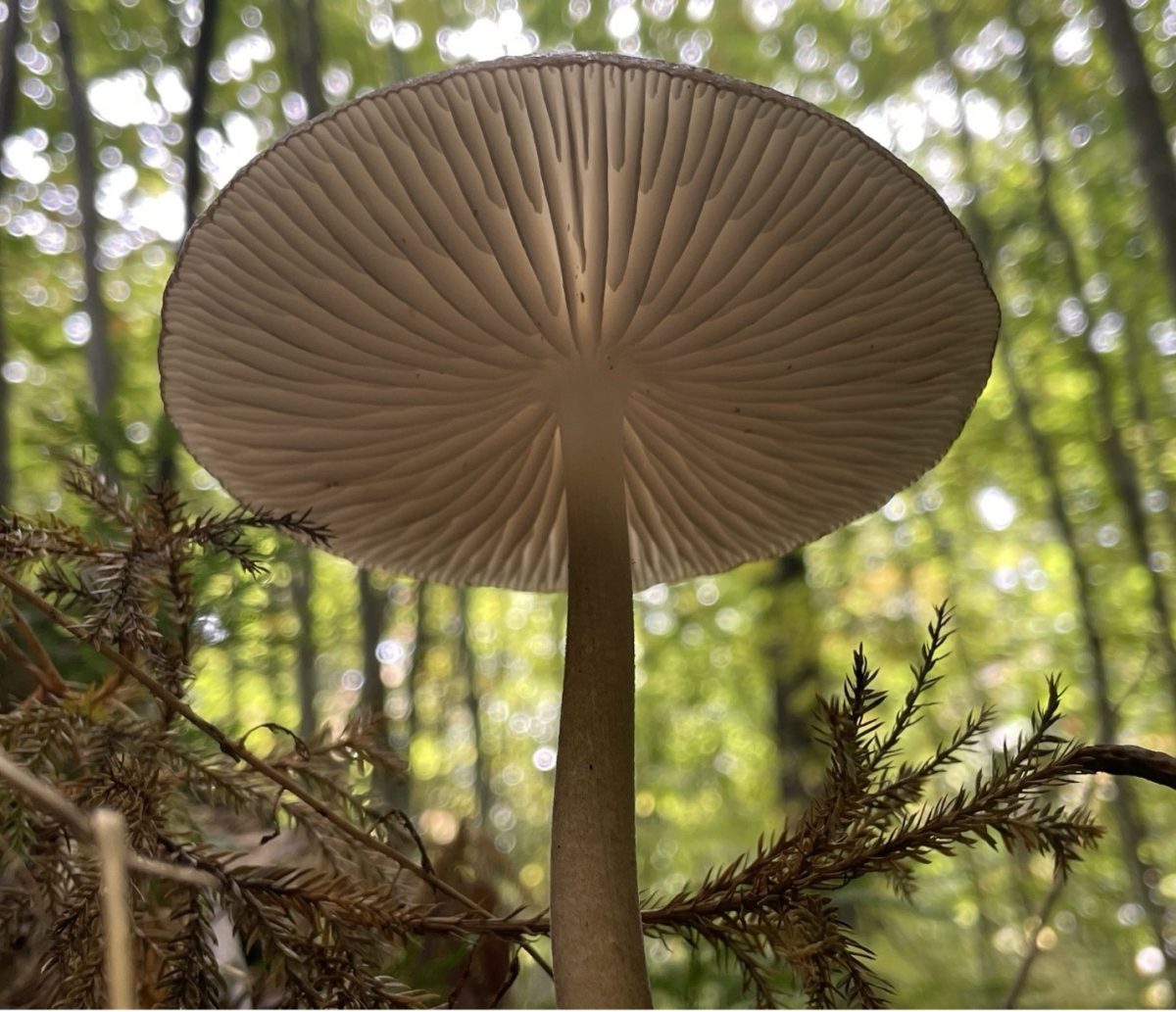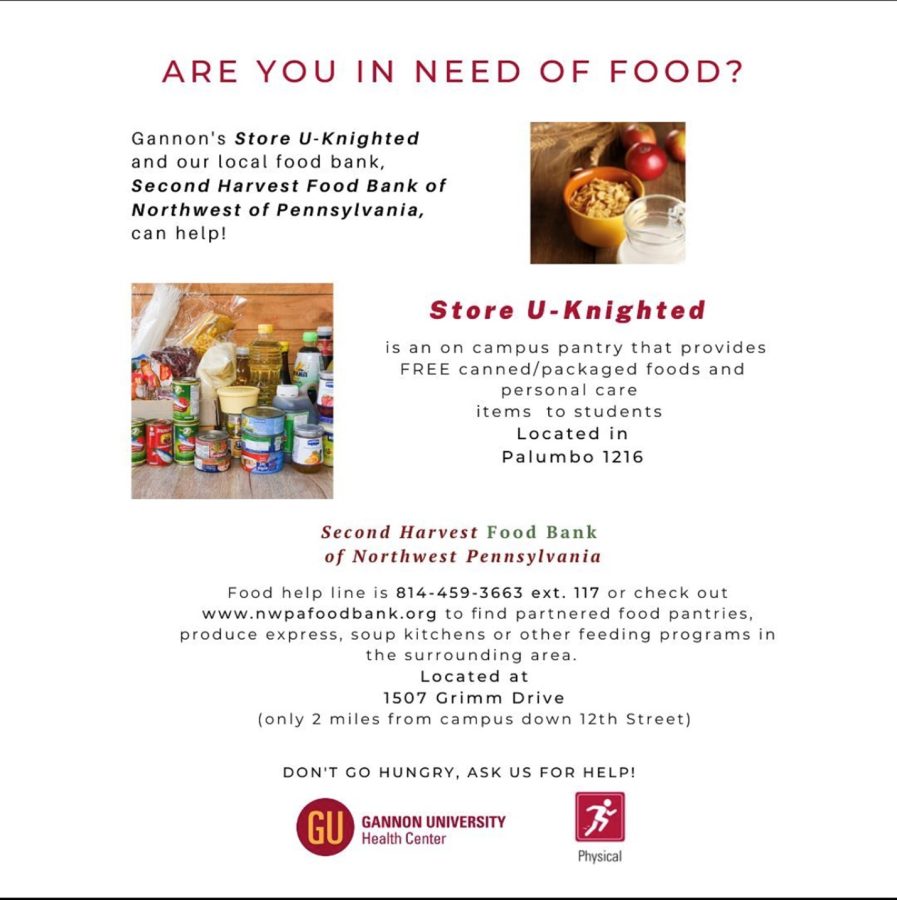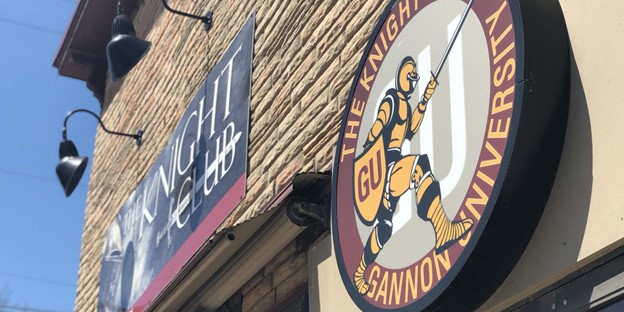Gannon University has already made several efforts to improve its carbon footprint, and now Metz & Associates Ltd., the University’s dining services provider, is adding a new initiative to the mix: going tray-less in the Beyer Hall Cafeteria.

To introduce the idea, Metz employees, along with members of Gannon Goes Green and SGA’s food service committee, teamed up to “Weigh the Waste” Dec. 1.
Unannounced, Metz set up a table in front of the dish rack where students, faculty and staff set their trays down to be washed before they left.
Instead of putting them on the rack, the students handed their trays to the volunteers and watched them dump the remaining food from the trays into two large bins.
Pete Mannarelli, general manager for Metz, said the “Weigh the Waste” idea came about as a means to make students aware of how much food they’re wasting.
“Students don’t realize the effort it takes to clean all of the plates, cups, bowls and trays that they use,” he said. “They just put their excess food on the rack and call it a day. We’re trying to change that.”
The plan is for the Beyer Hall Cafeteria to go “tray-less” during the lunch period once a week, beginning Friday.
“We’re trying to move one step closer to sustainability,” Mannarelli said. “We have to take small steps in order to reach the overall goal.”
Mannarelli said he and the other employees of Metz came up with idea after hearing about it being successful on other college campuses.
After the lunch period, the two bins were taken and weighed. The bins contained students’ wasted food, including full pieces of pizza, untouched quesadillas, sandwiches, whole pieces of fruit and full cups of soda, milk and coffee.
The total amount of wasted food weighed 109 pounds, which is enough to feed 114 people, according to Tracy Harrington, office manager for Metz & Associates Ltd.

Steven Ropski, Ph.D., professor in the biology department and co-chair of Gannon Goes Green, said that he is glad Metz is starting to go tray-less.
“It’s worked other places, so it’s definitely worth a try,” he said.
Ropski said that he believes it is important for students to be educated on issues like conservation.
“Students need to understand that it’s a part of our job as humans to leave the environment in better shape than we found it,” he said.
However, some students said they feel that the tray initiative won’t make a difference.
Tyler Babcock, a junior nursing major, said that going tray-less isn’t the best idea because of students’ time constraints.
“I only have so much time to eat when I’m in the cafeteria,” he said. “It’s easier for me to grab one tray and put everything on it instead of getting up over and over again go get more food. I’m going to eat what I want, even if I do have to take more trips.”
Babcock also said that students shouldn’t be restricted, as they are paying for meals in the cafeteria.
“I pay $9 for a meal, and I’m going to get my money’s worth,” he said. “It doesn’t make sense to try and set limits in an all-you-can-eat environment.”
Heather Schumacher, a junior pre-med/biology major, said she doesn’t think that going tray-less will make much of a difference.
“It’s not like we’re not paying for the food we’re wasting,” she said. “People are still going to just get up and make more trips to get more food.”
Schumacher also said that although fewer trays will have to be washed, there will be as many plates and cups to balance it out.
Veronica Mummey, a senior legal studies major, said she thinks going tray-less is a good idea but feels it won’t have much of an impact.
“I would have to walk up multiple times to get more than one plate of food,” she said. “It would certainly help reduce food waste, but it wouldn’t be a drastic change.”
Mannarelli said he is looking to go tray-less once a week starting Friday, and will increase tray-less days depending on student response.









